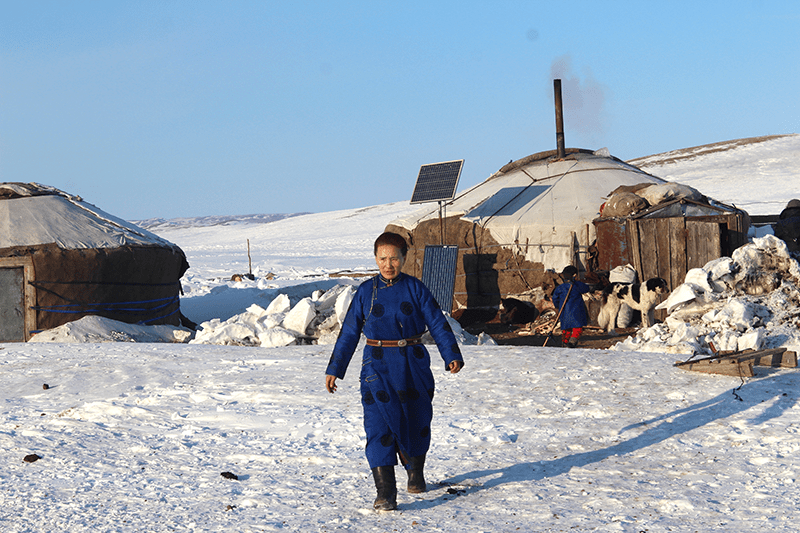Harsh winter conditions in Mongolia threatened to reach ‘dzud’ levels – the term for heavy snowfall and extreme temperatures that cause mass losses in livestock. © UNFPA Mongolia/Bayartsogt Shagdarsuren
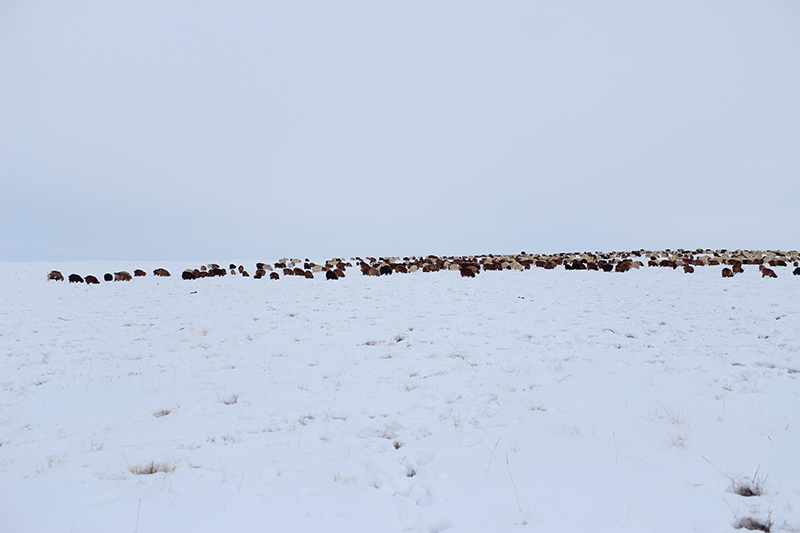
These situations are economically devastating for pastoral and nomadic communities. An estimated 165,000 people have been affected by the difficult conditions. © UNFPA Mongolia/Bayartsogt Shagdarsuren
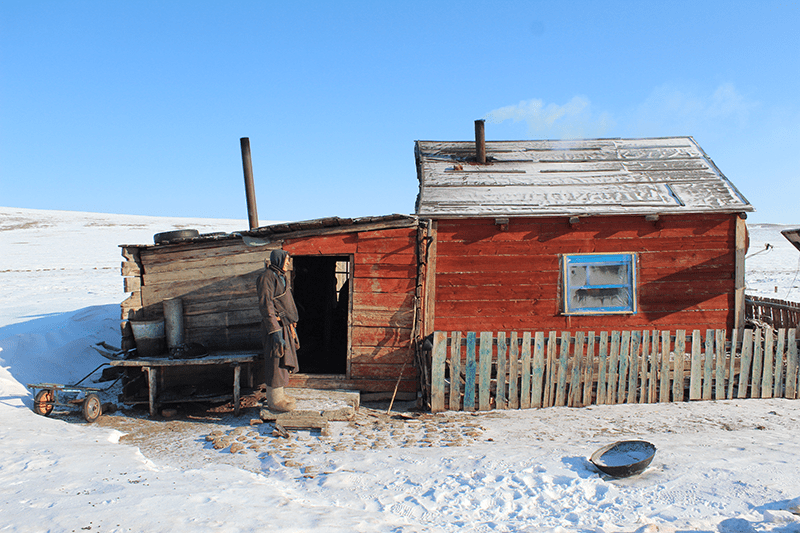
With families struggling to cope, women’s health and hygiene needs have taken a back seat. Some report rationing sanitary napkins to be able to afford food and fuel. © UNFPA Mongolia/Bayartsogt Shagdarsuren
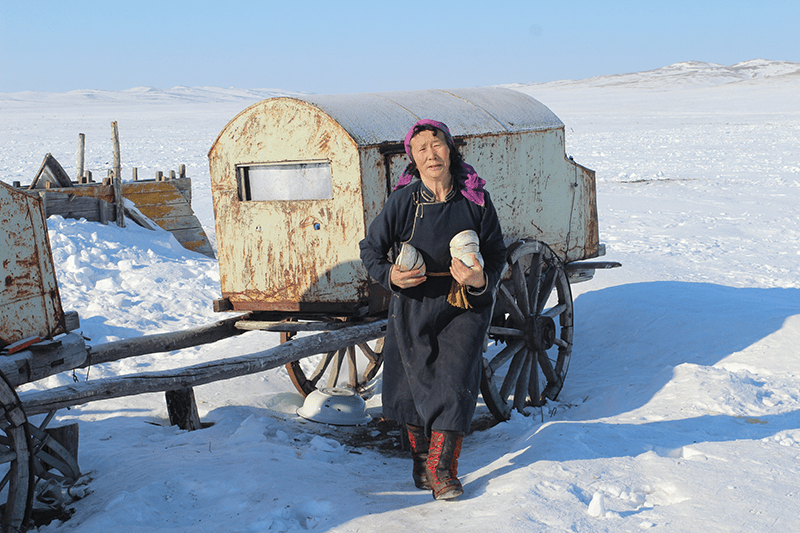
With roads blocked by snow, access to sexual and reproductive health care, including family planning supplies, has been limited. © UNFPA Mongolia/Bayartsogt Shagdarsuren
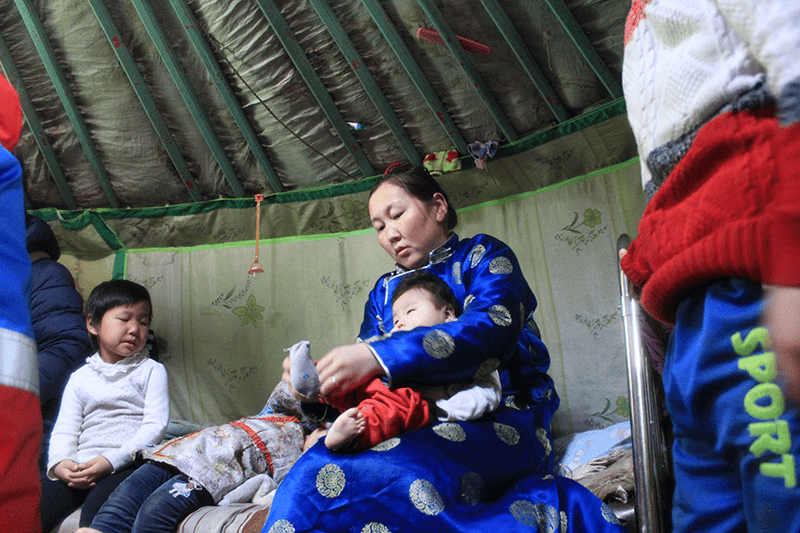
There are also fears that worsening economic pressures, coupled with high alcohol consumption, could raise the risk of gender-based violence. © UNFPA Mongolia/Bayartsogt Shagdarsuren
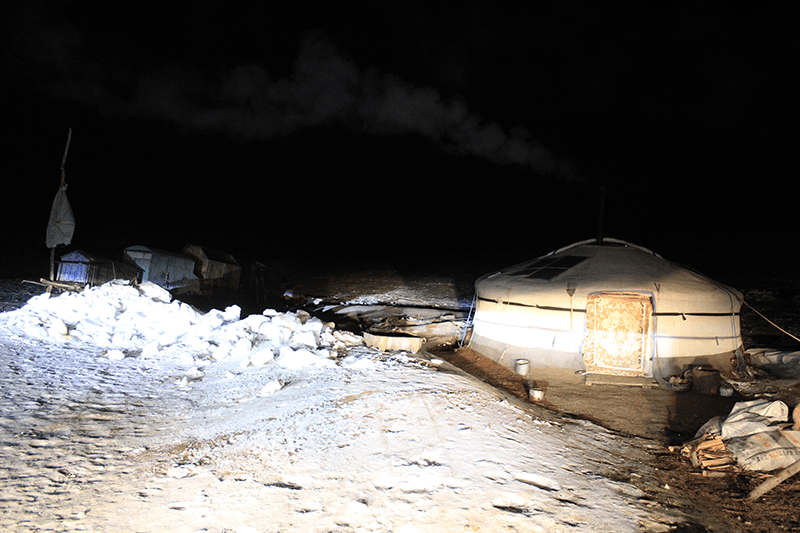
UNFPA has procured contraceptives to improve availability of family planning supplies. © UNFPA Mongolia/Bayartsogt Shagdarsuren
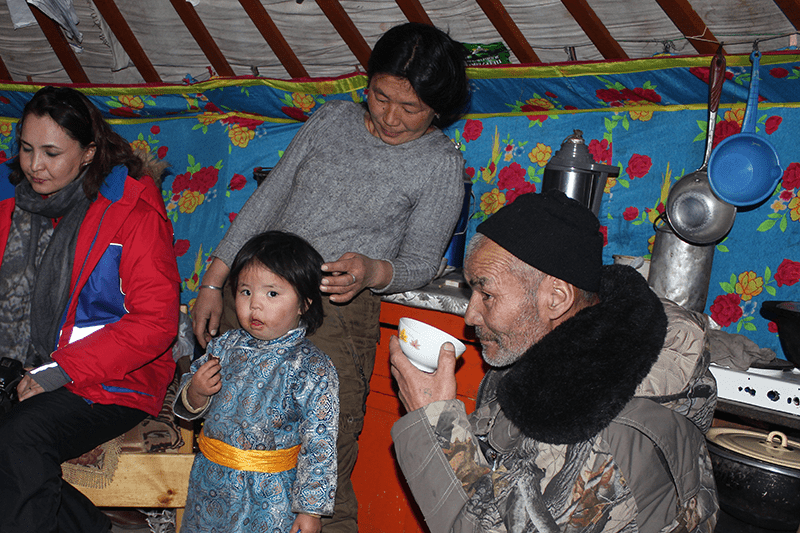
UNFPA also distributed dignity kits, which include hygiene supplies for women and girls, as well as flashlights and whistles to safely move about at night. © UNFPA Mongolia/Bayartsogt Shagdarsuren
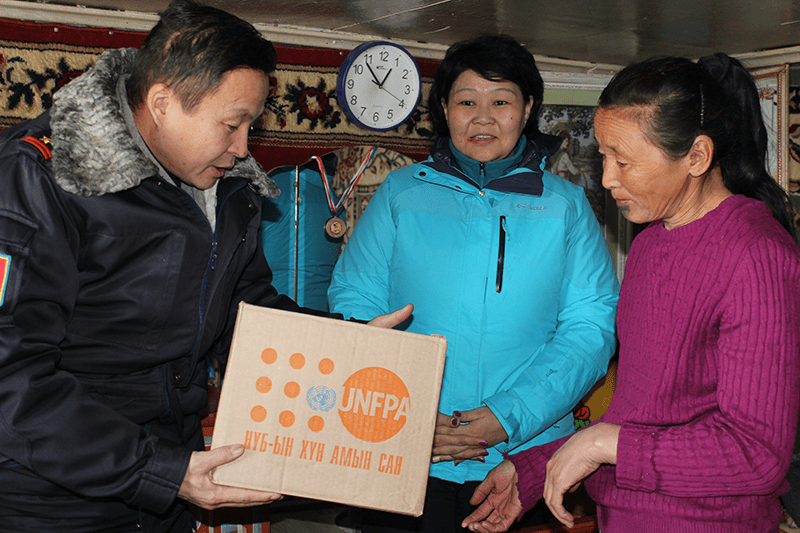
And many women are undaunted by these challenges. It is not the first time they have faced such circumstances. “This is all part of the herder’s life,” they told UNFPA. © UNFPA Mongolia/Bayartsogt Shagdarsuren
